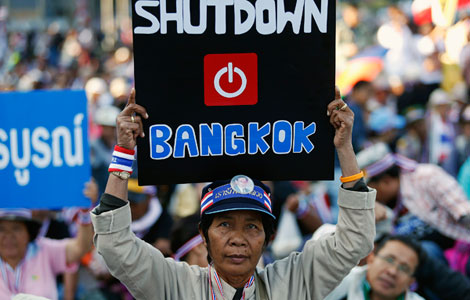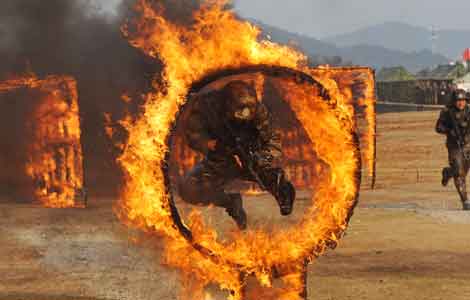Good crisis management
Updated: 2014-01-14 07:41
(China Daily)
|
||||||||
On Saturday, the State Administration of Work Safety published the full text of its investigative report on the oil pipeline explosion in Qingdao, Shandong province, on Nov 22, which killed 62 people and left 136 injured. The report elaborates, among other things, what actually happened, the emergency response to the blast and those responsible for it.
Key information on the explosion had been released earlier and there was no need for the details to follow. At least, that is how similar events were tackled in the past. But this time, the investigation was wrapped up with full disclosure of the findings, signifying the breakthrough in crisis management, said a Beijing Times commentary on Sunday.
In handling high-profile accidents like the one in Qingdao, authorities should never close a case by just offering a simple explanation, because people are keen to see the responsible parties punished and hope that a mechanism is put in place to prevent similar accidents. The full text of the investigative report does not only address the major concerns of the public, but also proposes precautionary measures to prevent such accidents.
Many major accidents have ended without proper follow-ups despite inviting massive attention. The handling of the blast in Qingdao and the release of the full text of the investigative report should serve as a paradigm for handling other high-profile accidents and guaranteeing transparency in government affairs to ensure that people get to know the facts.
In August, the SAWS issued a notice requiring local authorities to publicize all the findings of their investigations into work safety accidents. It also said that major accidents should be thoroughly investigated and the report timely published in full on the SAWS website. The report published by the work safety watchdog a month and a half after the Qingdao accident is an example of timely publication of investigative reports.
The best way to prevent misinterpretations is to make public relevant information on time. The proper handling of the Qingdao accident marks the beginning of the upgrade of administrative crisis management. Such a down-to-earth approach should become the convention in the handling of both major and minor accidents from the central to the local level.

 Cristiano Ronaldo wins FIFA best player award
Cristiano Ronaldo wins FIFA best player award
 Xuelong carries on mission after breaking from floes
Xuelong carries on mission after breaking from floes
 Beijing and Sofia vow new initiatives
Beijing and Sofia vow new initiatives
 71st Golden Globe Awards
71st Golden Globe Awards
 Bangkok unrest hurts major projects and tourism industry
Bangkok unrest hurts major projects and tourism industry
 No pant for cold subway ride
No pant for cold subway ride
 Tough army training turns boys into men
Tough army training turns boys into men
 Blaze prompts concern for ancient buildings
Blaze prompts concern for ancient buildings
Most Viewed
Editor's Picks

|

|

|

|

|

|
Today's Top News
Jackson's family bid for new trial denied
Newspapers must change or die
Abe’s brother to explain shrine visit to US
Protests cannot end Thai deadlock: observers
Mercy killing still a hot button issue
China builds army 'with peace in mind'
UN plea made on war victims
Li: China's tech innovation a priority
US Weekly

|

|






